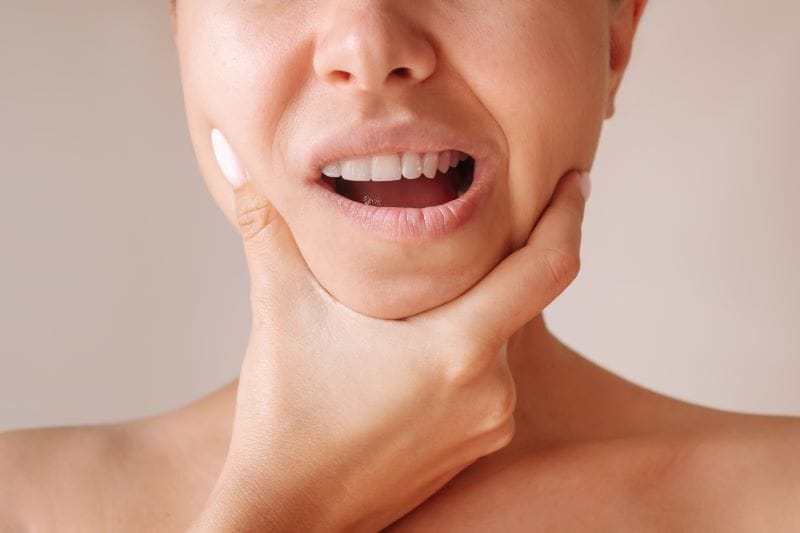- Thriving Guide
- Posts
- Tight Jaw Muscles Causes and Treatment
Tight Jaw Muscles Causes and Treatment
Why jaw tension happens and the best ways to find relief at home and with medical care.

Struggling with a tight jaw can make even simple tasks like eating, talking, or yawning uncomfortable. For some, the tension passes quickly, but for others it lingers and affects daily life. The good news: most causes of tight jaw muscles are treatable with the right combination of at-home care and medical treatment.
Common Causes of Tight Jaw Muscles
Jaw tension can come from different sources, including:
Stress and anxiety: Stress often shows up physically. If you tend to clench your jaw, muscle tightness is a natural consequence.
Temporomandibular joint disorders (TMJ or TMD): These affect over 10 million Americans and include muscle pain, joint issues, and arthritis of the jaw joint.
Teeth grinding (bruxism): Often unconscious, this habit can lead to jaw pain, tightness, headaches, and even chipped teeth.
Tetanus infection: Commonly called “lockjaw,” this bacterial infection causes severe jaw muscle stiffness alongside other symptoms like spasms, fever, and difficulty swallowing.
Arthritis: Both rheumatoid arthritis and osteoarthritis can involve the jaw joint, leading to pain, stiffness, and difficulty moving the jaw.
Excessive chewing: Gum, sticky candy, or very tough foods can temporarily overwork jaw muscles.
How Jaw Tightness Is Diagnosed
If jaw tension interferes with chewing, talking, or opening your mouth, it’s worth a medical evaluation. Doctors, dentists, or physical therapists typically start with a physical exam. Imaging tests like X-rays, CT scans, or MRIs may be ordered if TMJ disorders are suspected.
At-Home Remedies for Tight Jaw Muscles
Many cases improve with self-care. Some strategies include:
Heat and cold therapy: Apply warm packs to relax muscles or cold packs to reduce swelling and pain.
Over-the-counter pain relief: NSAIDs like ibuprofen, naproxen, or aspirin can reduce pain and inflammation.
Jaw stretches and exercises: Gentle stretching (such as slowly opening the jaw until resistance, holding briefly, then relaxing) may improve flexibility. Stop if pain increases.
Mouth guards and splints: Especially helpful for teeth grinding at night. Dentists may recommend custom-made options.
Diet adjustments: Stick to soft foods, cut food into smaller bites, and avoid chewing gum or tough meats during flare-ups.
Gentle massage: Applying light pressure to jaw muscles in circular motions can reduce tightness.
Medical Treatments
If self-care isn’t enough, other options may be recommended:
Prescription medications: Muscle relaxants or stronger pain relievers may be used in severe cases.
Physical therapy: A therapist can provide exercises, manual therapy, and treatments like ultrasound or electrical stimulation.
Injections: Options may include corticosteroids to reduce inflammation, hyaluronic acid for lubrication, or Botox for persistent muscle tightness.
When to See a Doctor
Seek professional help if:
Jaw tightness is persistent or worsening
You experience frequent headaches, ear pain, or difficulty opening your mouth
Your teeth show signs of wear from grinding
You suspect arthritis or other joint problems
Key Takeaway
Tight jaw muscles are often linked to stress, teeth grinding, or jaw joint disorders. For many people, relief comes with simple changes like using heat packs, doing gentle stretches, or wearing a mouth guard. If your symptoms are severe or long-lasting, professional care can help restore comfort and function.
Share this article or subscribe to our newsletter for more health insights.